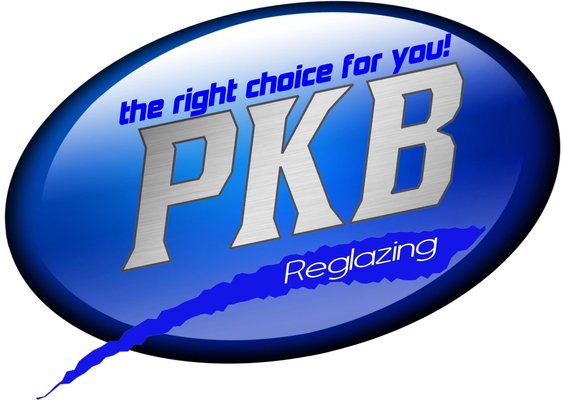This step highlights some of the different things you can do to help you find the right licensed contractor.
Make sure the contractor is licensed.
All contractor advertisements, whether it be an ad in the phone book or newspaper, a flyer that shows up at your front door, or the company's name on the side of a truck, must have the contractor's state license number. You can check license status on-line or call 1-800-321-CSLB (2752).
 |
| PKB Reglazing #941976 |
REMEMBER Most licensed contractors are competent, honest, hardworking and financially responsible. However, most of the problems the CSLB sees could be prevented if homeowners knew their home improvement rights and took responsibility for their project. A responsible and informed consumer can work more effectively with reputable contractors, and can avoid being victimized by unscrupulous or unlicensed operators.
Shop around before hiring a contractor.
Get at least three written bids on your project, and make sure you're comparing bids based on identical plans, specifications and scope of work. Do not automatically accept the lowest bid. In fact, you should beware of any bid that is substantially lower than the others. It probably indicates that the contractor made a mistake or is not including all the work quoted by his or her competitors. You may be headed for a dispute with your contractor if you accept an abnormally low bid. It is also possible that this contractor will cut corners or do substandard work in order to make a profit on the job.
When the contractor comes to your house to give you a bid, ask to see their pocket license, along with a picture I.D. You want to make sure the person you're dealing with is the same person on the license.
Contractors can also hire salespeople to work for them. Those people must be registered with the CSLB. Ask to see their registration card, along with a picture I.D.
REMEMBER Contractors are required to have their license number on their business card and on all bids and contracts. Seeing the number there doesn't necessarily mean the license is valid. Check the license status on this Website. Although an unlicensed operator may give you a low bid, the risks of possible financial and legal consequences you may face outweigh any benefits a lower bid may seem to offer.
Ask for personal recommendations.
Friends and family may have recently had similar projects completed. If they are satisfied with the results, chances are you will be too. Other good reference sources include local customers, material suppliers, subcontractors, and financial institutions to check whether the contractor is financially responsible. If you are still unsure, you may also wish to check the contractor out with your local building department, trade association or union, consumer protection agency, consumer fraud unit, and the Better Business Bureau.
Verify the contractor's business location and telephone number.
A contractor who operates a business out of the back of a pickup truck with a cellular telephone may be difficult to find to complete a job or fix something that has gone wrong after the last bill is paid. You can find a licensed contractor's "address of record" on this website when you look up their license status.
Verify the contractor's workers' compensation and commercial general liability insurance coverage.
Ask to see a copy of the certificate of insurance, or ask for the name of the contractor's insurance carrier and agency to verify that the contractor has the insurance.
In California, if a contractor has employees, they're required to carry workers' compensation insurance. The importance of this cannot be overstated. If a worker is injured working on your property and the contractor doesn't have insurance, you could be liable to pay for injuries and rehabilitation. Your homeowner's insurance may or may not cover those costs. You should check with your insurance carrier to make sure the workers' compensation insurance coverage being provided by the contractor is adequate. Learn more from the California Department of Insurance.
Commercial general liability insurance is not required, however, it covers damage to your property. If the contractor does not carry general liability insurance, they should be able to explain how they would cover losses that would ordinarily be covered by insurance. If your contractor damages your property and doesn't carry commercial general liability insurance, you or your insurance policy could end up paying for damages.
A licensed contractor must provide you with information regarding both types of insurance in your written contract.
ALERT Effective January 1, 2007, all roofing contractors (C-39 classification) must carry workers' compensation insurance or have a valid Certification of Self-Insurance on file with the CSLB. This information is indicated when you review the status of a contractor's license on this Website.
Learn about the contractor's bonds.
California licened contractors are required to have a contractor's license bond. It's important to know what bonds do and do not cover. Some bonds are designed to protect you against substandard work that does not meet with local building codes. Bonds do not assure the financial or professional integrity or competency of a contractor. Institutional lenders such as savings and loans, insurance companies or commercial banks generally require licensed contractors to secure bonds for large jobs.
Bonds may be classified as:
Contractor's License Bonds
Licensed contractors are required to have a contractor's license bond of $12,500 (as of January 1, 2007). This bond is written to cover any project the contractor agrees to perform. But, be aware, this bond is often not enough to cover multiple complaints made against it or your project if it's worth more than he value of the bond.
Contract Bonds
Contract bonds guarantees both the completion of the job and payment for all labor and materials. In general, the bonding company will not have to pay more than the face amount of the bond. The cost of this bond is usually 1-2% of the contract price.
PKB Reglazing
(800) 951-5659
License #941976
http://www.cslb.ca.gov/Consumers/HireAContractor/FindingTheRightContractor.asp
